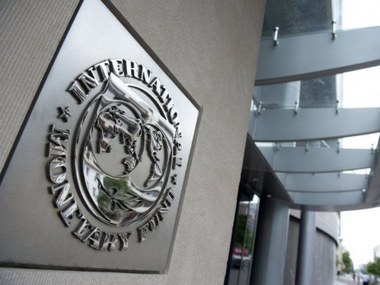Shanmuganathan “Shan” Nagasundaram
I am not very sure what the average reader is going to make of the contents of this article. While I usually try to write from first principles, the issues in this article go much deeper. The intended audience may just be one person.
To start with, Raghuram’s criticism of the IMF is misplaced. Sure enough, the monetary policies of the west are a disaster, but in suggesting that IMF should oversee the purely domestic mandates of central banks on the spill-over effects on the world, he is, “perhaps inadvertently”, arguing for even greater central planning that is the case already. Haven’t we suffered enough from all of the central planning already? Maybe he is an agent of the IMF as Subramanian Swamy has alluded to . But that’s not the blind spot that I want to talk about.
I am talking about a more fundamental issue – deflation – or what people actually mean i.e. “falling prices”. That somehow falling prices are a threat to world’s prosperity. Sure enough, the world has been fed on the snake oil that deflation & lassie faire caused the Great Depression. These are pure governmental versions of history and I am just going to provide pointers for further reading. The thinking is so misplaced and so obviously erroneous, that if somebody has bought into it, it would require a much deeper catharsis than what an article can provide.
In case readers are sceptical of my thought that governments peddle “snake oil”, take the standard explanation for the 2008 crisis for example: The US senate concluded that the crisis was caused by “high risk, complex financial products; undisclosed conflicts of interest; the failure of regulators, the credit rating agencies, and the market itself to rein in the excesses of Wall Street”. Other similar reports blamed “excessive deregulation, repeal of the Glass-Steagall Act” etc.
Raghuram ought to know that the above is almost garbage. All these entirely miss the Numero Uno role of the US Fed and the secondary role of governmental entities such as Fannie Mae and Freddie Mac in creating and propagating the bubbles. The above usually-mentioned excuses are only the third or the fourth order causes and none of these would have created the bubble in the absence of loose monetary policies under Greenspan and then Bernanke. But then all these governmental reports are just self-appraisal’s and we shouldn’t be surprised with their findings – Absolve themselves, blame capitalism and give themselves even greater regulatory powers. Never let a crisis go to waste.
I am suggesting that Bernanke’s version of what caused the Great Depression is no different. Just an excuse for granting greater power to Central Banks. But what do I have to prove otherwise?
For starters, the readers can study US history when the entire nineteenth century was deflationary and that’s when US transitioned itself from a primarily agrarian/backward society to an industrial powerhouse. That epochal change happened under the gold standard in conjunction with falling prices for nearly a hundred years and was marked by remarkable progress in the standards of living. Ofcourse, we have a much better standard of life today relatively – but that’s just the magic of compounding built upon the foundations provided by the gold standard.
Or look at the technology industry today. Televisions, cars and other hi-tech gadgets have been around for decades now and adjusted for quality, prices have been continuously falling and the industry has been booming. I have not seen people postponing purchases on account of cheaper prices in the future – and these discretionary spends and not even the essentials!!!. So the propaganda that consumers and industry is hurt due to falling prices just doesn’t hold up.
Readers can rightfully ask a question: if life is so great under deflation, then why wouldn’t governments have it all the time? Because it’s not good for them. The most heavily leveraged entity is almost always the government and it’s much easier for them to operate under an inflationary system that erodes the real value of their debt rather than have a deflationary system which increases the value of their debt. Governments need inflation all the time.
So what’s about deflation and the depression? As one of my college professors used to say “correlation doesn’t imply causation”. If anything, deflation made the depression a lot more tolerable for the citizens than would have been otherwise. For further reading, I would suggest “What has Government done to our money” and “America’s Great Depression” – both by Murray Rothbard to really understand the issues involved.
A short summary is however due in order: The US Fed created the stock market bubble of the “roaring twenties” just the same way they created the tech bubble and then the housing bubble. When it burst in 1929, as all bubbles eventually do, the then US Presidents – Hoover and then Roosevelt - repeatedly intervened to prevent the much needed cleansing of the excesses by the market. Hoover, chastised as a lassie faire, was anything but and was the most interventionist President to date at that point in time. His then Treasury Secretary Andrew Mellon’s sage advice of “liquidate labor, liquidate stocks, liquidate farmers, liquidate real estate…” was completely ignored by Hoover.
A more recent reading of how Hoover could have possibly handled it better can be understood by reading Jim Grant’s “The forgotten Depression - 1921: The Crash that Cured itself”.
But the story so far has been – Blow up a bubble. Blame the markets. Usurp greater powers. We have seen this repeated a number of times and yet the world continues to accept the farce. Will Raghuram change the script?
The author is the founding director of Benchmark Advisory Services – an economic consulting firm. He is also the India economist for the World Money Analyst, a monthly publication of Mauldin Economics. He can be contacted at shanmuganathan.sundaram@gmail.com
)
)
)
)
)